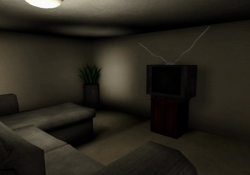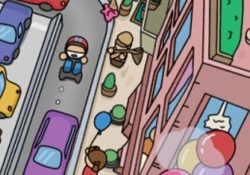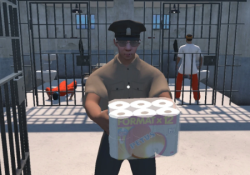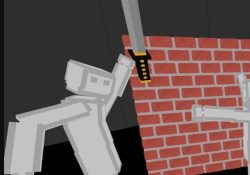Dollmare begins with a simple setup: you’re broke and need a job, so you take one at a doll factory. The work seems easy enough—inspect dolls, follow instructions, and get paid. But the factory is quiet in a way that doesn’t feel normal. The dolls don’t look broken, but they don’t look still either. As you start your shift, you realize this is not the kind of job you can just walk away from without consequences.
At first, the tasks feel routine. You’re told to look for visual defects, strange poses, or movements that don’t belong. There are no monsters and no chases, but the fear builds from silence and small changes. The factory feels like it watches you, and the dolls become more than just toys on a conveyor belt. There’s no alarm, but every moment pushes you deeper into a place that doesn’t feel safe anymore.
What You’ll Be Asked to Do
Each day in Dollmare brings new tasks that feel normal on paper but strange in practice. You’re told not to question the rules, only to follow them exactly. The game builds its horror through procedure—by making you carry out instructions that feel just a little wrong.
Your duties will include:
- Inspecting dolls for unexpected features or changes
- Exploring factory rooms with flickering lights and locked doors
- Maintaining machines while strange things happen around you
- Obeying silent rules without knowing their purpose
- Trying to understand what the factory is hiding
These tasks never seem urgent, but they carry weight. Every mistake could mean something you can’t undo.
Unscripted Tension
Dollmare doesn’t rely on jump scares or loud sounds. It creates fear through quiet tension, with moments that feel wrong even when nothing obvious has changed. The horror here is in the details—a doll turning its head slightly, an empty hallway that feels less empty the second time you walk through it. Each playthrough offers different patterns, so no two players will experience the same events. This unpredictability makes every moment feel unsafe.
The atmosphere gets heavier as you progress. Lights seem dimmer, sounds echo longer, and your own footsteps start to feel too loud. There’s a strong sense that something is waiting—not to attack, but to observe. The lack of direct danger makes every second more stressful, because you don’t know when or if something will happen. But you feel certain that it will.





























